Constitution
Convention of States

Everyone who values life, liberty or property knows Barack Obama has been systematically violating the Constitution. Nor is he alone in doing this, nor even are the Democrats alone. But people do not agree on how to stop it. Some say: elect good people, and they can stop or roll back the worst abuses. Others say we must change the Constitution. They want to change it in ways to which Congress would likely never agree. So they want to invoke another way to change the Constitution: a Convention of States.
What is a Convention of states?
Article Five of the Constitution reads in relevant part:
The Congress…on the application of the legislatures of two-thirds of the several States, shall call a convention for proposing amendments [to this Constitution].
The article goes on to describe the two ways that three-fourths of the several States can ratify Constitutional amendments.
George Mason, Constitutional Convention delegate from Virginia, recognized that Congress might abuse its authority. He wanted a way for the people to change their Constitution in a way with which Congress could not interfere. Gouverneur Morris, among others, then suggested this method: a Convention of States for proposing amendments.
To date, Congress has never called such a convention. The last time they came close to having to call it, came when the public demanded popular election of Senators. Nearly two-thirds of the States then extant did apply for a Convention of States. To forestall this, Congress hastily wrote the Seventeenth Amendment. The State legislatures, similarly afraid of the people, ratified this.
The Convention of States project
Today several activists and commentators believe the States must convene again, as they did in 1787. The leaders of this Convention of States project say why:
The federal government has overreached its constitutionally established boundaries and has its hands in almost every area of our lives. Our children and grandchildren will inherit a bankrupt nation run by an unaccountable bureaucracy.
How has this happened? CNAV attended a “viewing party and rally” at the Williamsburg Regional Library in Williamsburg, Virginia yesterday (23 September). About twenty-three attendees watched a live stream in which delegates from across the country simulated a Convention of States. The attendees spoke freely to CNAV about the “how.” Congress, they said, delegated some of its law-making power and even judicial power to the “bureaucracy” they decry. The Members have also voted in many protections for incumbent Senators and Representatives. The most common way anyone leaves either House of Congress is by declining to seek re-election. The second most common way: feet first. Defeat when standing for re-election, either in the general or any primary election, ranks a distant third. (Rarely, the Member’s respective House expels him. Or else the leaders tell him to resign after a court prepares to try him for a felony.)
These activists believe the Constitution must change so that the most flagrant abuses cannot happen again. Congress, they say, will never do it. A Convention of States can consider how to change the Constitution to suit the people, not Congress.
Opposition to the project
The Convention of States project definitely has its opponents. One, “texting in” to one attendee, called the simulation a “travesty.” In all fairness, the Convention simulation was not a burlesque, either of parliamentary procedure or of the kind of serious debate these activists hope will take place. The nearly seven-hour simulation played out strictly according to Mason’s Manual for Legislative Bodies. This is the most common set of parliamentary rules State legislatures use. The Convention of States Project believes most delegates to such a convention will come from State legislatures. To use such a common set of rules therefore makes sense.
Furthermore, those taking part in the simulation recognized the weight of the issues before them. They dropped one popular proposal when they felt they could not draft it properly in so short a time. In short, they showed themselves ready to discuss seriously the Constitution and how and why to change it.
But all this depends on whether they would in fact be the delegates to the real Convention of States. That is the rub.
Refusal to call a convention
Congress might refuse to call a convention. Some of the twenty-three Williamsburg attendees asked the Project organizers what they would do then. They answered that the States would hold a Convention anyway, and submit amendments to the States for ratification. Would federal and State courts accept these amendments as “valid to all intents and purposes as part of this Constitution”? The organizers admitted: they didn’t know. They said it would make an interesting Constitutional question. They meant Constitutional crisis, though they did not want to speak aloud that ancient Greek word for a trial. A crisis would indeed ensue. The Supreme Court would then have to consider the weightiest question any such Court ever considered. (And how could they, if someone proposed changing the Court’s very terms of office?)
A runaway convention?
The Project site keeps this list of responses to the most common objections they hear. But CNAV went to this gathering to get a direct answer to the most serious problem: a runaway convention. Andrew L. Schlafly, founder and editor-in-chief of Conservapedia, shared his misgivings with CNAV:
If you read Article Five carefully, Congress calls the convention. So Congress can set the rules. They can determine who selects the delegates, and how. They then could propose all sorts of amendments of the kind we don’t want. [That would include] repeal[ing] the Second Amendment, [and] do[ing] away with Citizen’s United. And the States would ratify all that, because the liberals would have the media behind them.
Schlafly refers, of course, to the case of Citizen’s United v. Federal Election Commission. The Supreme Court held that companies of any sort, not labor unions only, had the same right of free speech as have individuals.1 Liberal activists have called for changing the Constitution ever since, to say that only individuals, and approved collectives, have free speech. They also have called lately for repealing the Second Amendment.2
CNAV laid Andrew Schlafly’s objection before the organizers in Williamsburg. “An excellent question,” said David Detrich, one of the organizers. He then held that Congress would have no more than a secretarial role. “To call,” in the context of Article Five, does not authorize Congress to select delegates. In any event, he asked rhetorically, would the States applying for a Convention of States, stand for its hijacking?
Media manipulation
For answer, CNAV set forth this scenario. Suppose the publishers, managing editors, etc., of the largest Mainstream Media organs colluded to stage events to sway the public?
You and I, of course, have alternative sources for getting our news. But can you count on most ordinary citizens to avail themselves of these resources? I doubt it.
One organizer finally suggested two separate conventions might then meet. The States would then opt for whichever convention they considered legitimate. This would especially apply to the original applicant States. (Two-thirds of 50 States make 34, fewer than the 38 that ratification requires.) Last of all, he asked:
Congress could propose all those horrific Amendments now, if they so chose. Why haven’t they?
Conclusion
Without doubt, those opting for a Convention of States have shown such a convention would deliberate properly and seriously about the Constitution. They have not so far shown exactly how to succeed if:
- Congress refuses to call such a convention, even with thirty-four substantially identical applications.
- Congress calls the convention, then stacks it with their own delegates.
They have not so shown, because no one can so show. A Convention of States has no legal precedent as it is. If either of these two irregular things happen, the courts would be at greater loss to resolve either event.
1 The case came to the Court after Citizen’s United made a motion picture critical of Hillary Clinton. President Obama famously complained about this in his State of the Union address in 2010. Obama accused the court of opening the American election process to foreign influence. Justice Samuel J. Alito, facing the President, mouthed, “That’s not true” in answer. But of course none present could anticipate, much less appreciate, the irony we see today. Namely: Hillary Clinton, the subject of that movie, herself sells government policy for foreign donations.
2 Liberals believe no person, except a law-enforcement officer, an active-duty military service member, a Very Important Person, or such person’s bodyguard, should ever own or even touch a firearm. Few among them, except for Senator Dianne Feinstein, D-Calif., will ever say this out loud. But the overall tone of their advocacy can imply nothing else. Senator Feinstein did say, out loud, words to this effect to Lesley Stahl, correspondent for Sixty Minutes, on 5 February 1995.
Terry A. Hurlbut has been a student of politics, philosophy, and science for more than 35 years. He is a graduate of Yale College and has served as a physician-level laboratory administrator in a 250-bed community hospital. He also is a serious student of the Bible, is conversant in its two primary original languages, and has followed the creation-science movement closely since 1993.
-
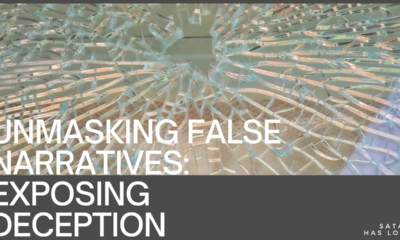
 Clergy5 days ago
Clergy5 days agoWhy Do The American People Let The Corrupt Media & Politicians Set The Propaganda Narrative – Speak On Their Behalf
-
![CHAPTER 10: Objective Reality Is Required for a Free Society Space Is No Longer the Final Frontier—Reality Is [upcoming release May 2024]](https://cnav.news/wp-content/uploads/2024/04/Objective-reality-v-acceptance-400x240.png)
![CHAPTER 10: Objective Reality Is Required for a Free Society Space Is No Longer the Final Frontier—Reality Is [upcoming release May 2024]](https://cnav.news/wp-content/uploads/2024/04/Objective-reality-v-acceptance-80x80.png) Education5 days ago
Education5 days agoCHAPTER 10: Objective Reality Is Required for a Free Society Space Is No Longer the Final Frontier—Reality Is [upcoming release May 2024]
-
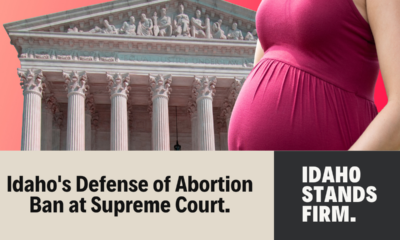
 Human Interest4 days ago
Human Interest4 days agoIdaho prepares to defend its abortion ban
-

 Education1 day ago
Education1 day ago‘Grading for Equity’: Promoting Students by Banning Grades of Zero and Leaving No Class Cut-Ups Behind
-

 Civilization4 days ago
Civilization4 days agoEarth Day Should Celebrate U.S. Progress & Innovation
-
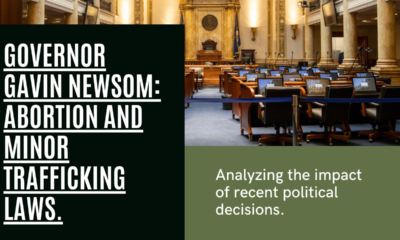
 Civilization2 days ago
Civilization2 days agoNewsom plays silly abortion politics
-

 Education4 days ago
Education4 days agoThe Intifada Comes to America. Now What?
-
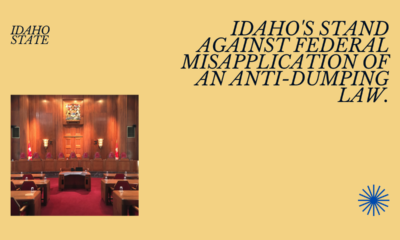
 Family1 day ago
Family1 day agoIdaho defends against abortion mandate



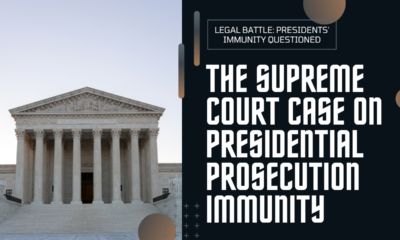

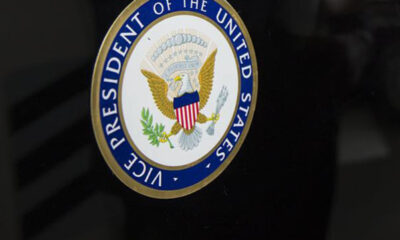







They won’t let it work. The federal government has already vowed as much… Civil war is the only option and we already know the UN is in place to counter that….
Sean Michael liked this on Facebook.
Nick Raygun liked this on Facebook.
Robert Houlst liked this on Facebook.